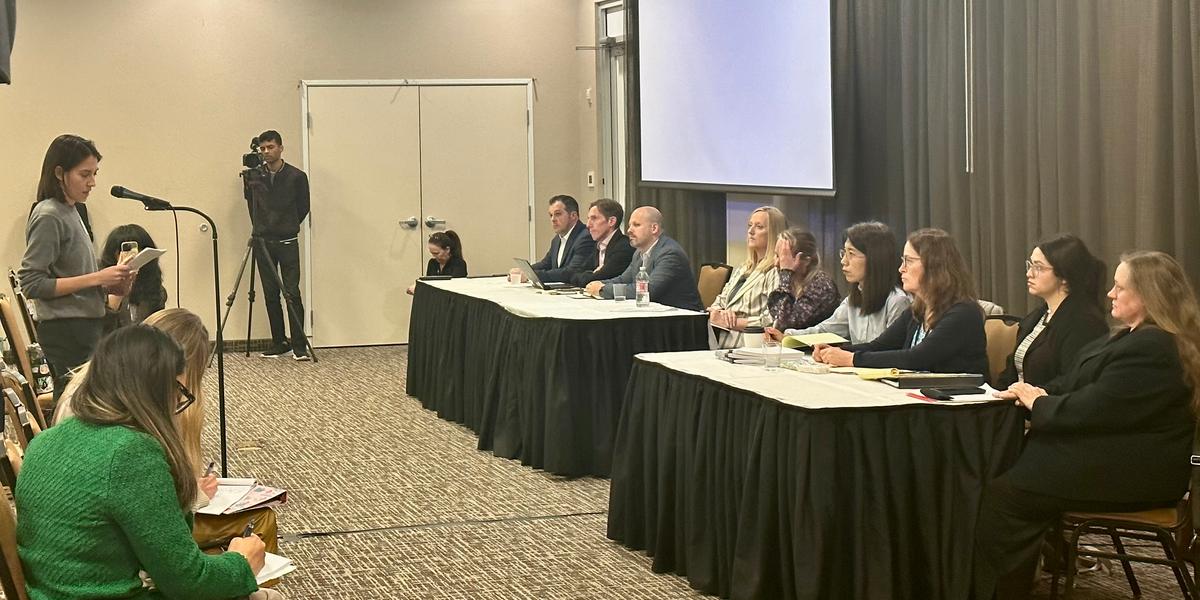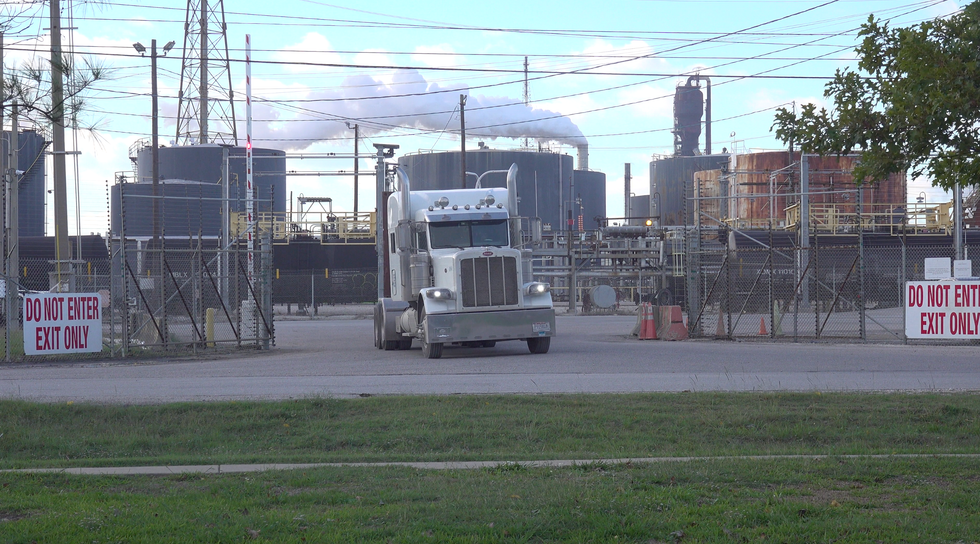
One of the country’s largest petrochemical complexes wants to expand amid community backlash
Community members point to 13 years of litigation over alleged illegal pollution and three consecutive years of Clean Air Act violations.
BAYTOWN, Texas — Exxon’s Baytown complex in the Houston-area has the third largest oil refinery in the U.S. and is requesting permit renewal for its olefins plant despite repeated violations to the Clean Air Act.
Exxon’s renewal permit needs to be approved by the Texas Commission on Environmental Quality (TCEQ) every five years. The renewal was contested by residents and activists alike at a meeting this week due to pollution concerns and 12 consecutive quarters of Clean Air Act violations at the Baytown Olefins Plant, one of the largest in the world. The Baytown Olefins Plant manufactures approximately 10 billion pounds of petrochemical products each year, according to Exxon, and also emits chemicals like benzene which is classified as a carcinogen by the U.S. Environmental Protection Agency. The plant produces materials for products like plastics and tires.
The TCEQ permitting board held a notice and comment hearing with Exxon representatives on Monday, Feb. 5. Community members expressed concern over the planned expansion and pointed to ongoing pollution and the company’s spotty record, while Exxon representatives stated a reduction of 50% in emissions of volatile organic compounds from 2019 to 2022 at its olefins plant.
“The intensity of our emissions has continued to decrease as we’ve grown in capacity at this site,” said during the meeting Exxon representative Thomas Wauhob.

Exxon Baytown is home to one of the largest petrochemical complexes in the U.S.
Credit: Cami Ferrell for Environmental Health News
Exxon uses some air monitoring data from the Houston Regional Monitoring (HRM), which they partially fund. TCEQ recognizes HRM as an approved source for air monitoring. When asked by members of the public, Exxon claimed to be unaware of any current Clean Air Act violations and stated that they were “in compliance” with all environmental regulations. However, five fines totaling $76,462 were issued for violations of the Clean Air Act at the olefins plant from February of 2020 through August of 2023. There is no available data on if the fines were collected.
Exxon’s Baytown complex has a history of violating the Clean Air Act and currently is in a 13-year litigation process of appeals in the case of Environment Texas Citizen Lobby v. ExxonMobil Corp. The case alleges that Exxon contributed to 1.5 million pounds of illegal pollutants from October 2005 through September of 2013. The most recent ruling upheld the fine of $14 million dollars, the largest ever citizen lawsuit penalty. When asked about the case in the question period of the hearing, Exxon said that it was in another process of appeals and that they do not believe they went against any regulations.
The surrounding area within a mile of the Baytown Olefins Plant is in the 99th percentile for air toxics cancer risk, toxic releases to air and respiratory hazards. Baytown’s population is 78% people of color, and 29.4% do not have health insurance, according to the U.S. Census Bureau.
“Your zip code should not determine whether or not you get cancer”

Shiv Srivastava, policy director for environmental justice group Fenceline Watch, gives public comment.
Credit: Cami Ferrell for Environmental Health News
Personal stories of cancer and resulting loss filled the room on Monday evening. Nearly every person that spoke either had cancer or spoke of someone they knew with cancer.
“Your zip code should not determine whether or not you get cancer,” said Shiv Srivastava of the Houston-based environmental justice group Fenceline Watch.
“How many more people does it take?” asked Dominic Chacon, from Texas Campaign for the Environment. “Is it 50, 100, 200? You may get tax abatements from us, but we refuse to fund our own deaths.”
If the permit is renewed, Exxon has plans to add a ninth furnace to the Baytown Olefins Plant. Individuals that live near the current eight furnaces shared complaints of cracks in their walls, issues opening windows or vibrations in their floors.
“It’s chaos in my house,” said Shirley Williams, whose backyard neighbors the furnaces. “We can’t sleep at night. We call, you say you’re [Exxon] going to come, and you never come.”
“Every week I straighten my pictures due to the vibration coming from the ‘great 8’ furnaces,” said Baytown resident Janeice Carroll. “When the ground flare is blazing, there’s no chance for sleep. I can’t believe we are talking about a ninth furnace when you can’t run the eight you already have.”
If the TCEQ approves the permit, the EPA has 45 days to reject the approval, according to a spokesperson from the TCEQ legal department. At this time, the comment period has ended, but community members did ask for an extension which has yet to be granted.














